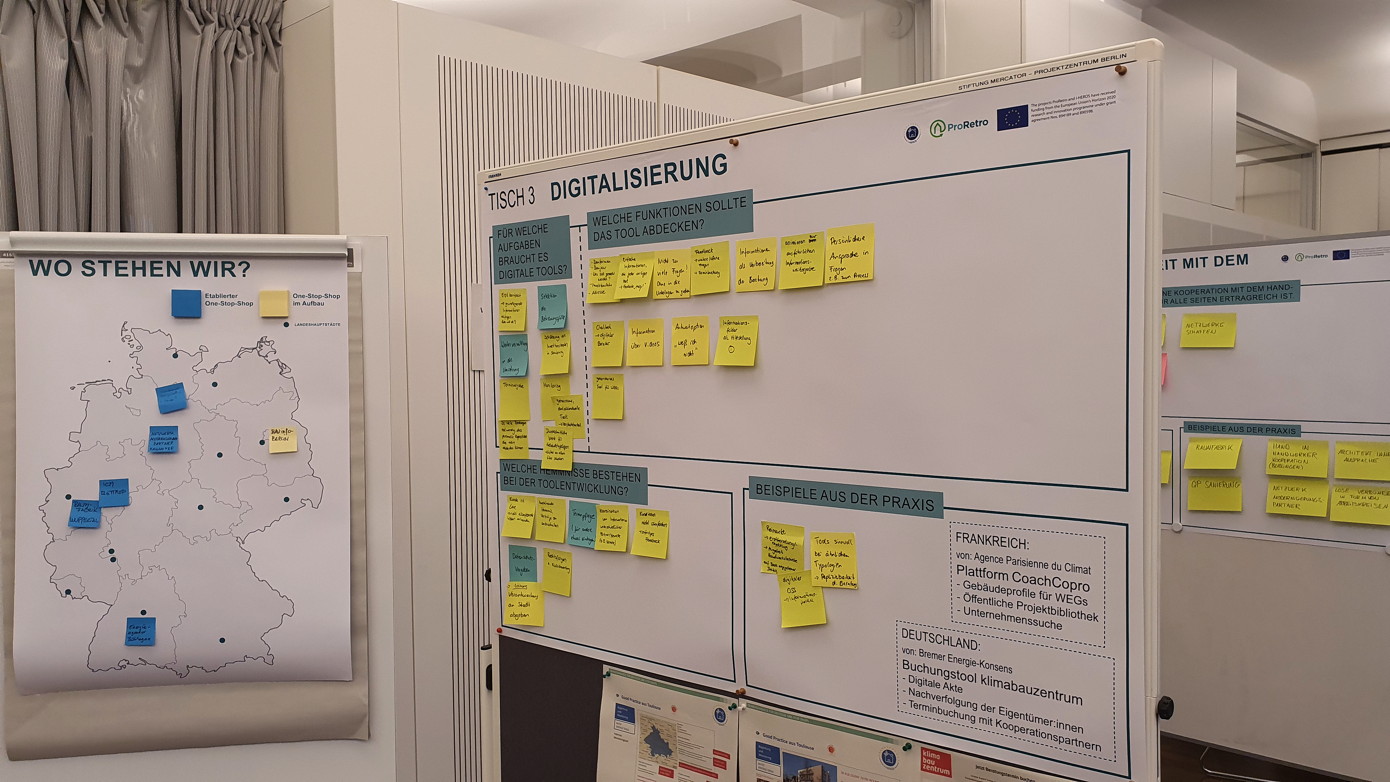
The final workshop of the ProRetro project took place in Berlin on 19 October 2023. It was organised by the ProRetro team together with ZEBAU, which is a project partner in the One-Stop-Shop project I-HEROS also funded within the Horizon 2020 programme. The documentation of the workshop, which summarises the contents and results of the workshop, is now online and can be downloaded here.
Primarily, the workshop was aimed at organisations from Germany that are interested in developing their own One-Stop-Shop services. However, other organisations interested in the topic were also welcome. Representatives from regional energy agencies, local authorities, private companies and city networks took part in the event.
Topics of the workshop
After a welcome address by Felix Suerkemper, Mathias Koepke, senior expert in the field of “climate-neutral buildings” at the Deutsche Energie-Agentur (the German Energy Agency), emphasised the magnitude of the task of making the building stock climate-neutral in his keynote speech “Towards a climate-neutral building stock: current challenges and strategies for the future”. He also presented various strategies on how this goal can be achieved.
One-Stop-Shops can be an instrument that facilitate the achievement of the goal of a climate-neutral building stock. Firstly, Jan Kaselofsky from the ProRetro project presented the idea behind the “One-Stop-Shop” concept. He also introduced different conceivable business models and demonstrated how such a One-Stop-Shop could look like in practice using an example from France. Amke Oltmanns and Jessica Zander from ZEBAU reported on the I-HEROS project and explained which approaches developed in the project for the Toulouse metropolitan region could also be applied in Germany. They also referred to the services offered by the Hamburger Energielotsen (translates to Hamburg energy pilots), in which ZEBAU is involved.
Afterwards, the five implementation partners from ProRetro had the opportunity to present the services they had developed and trialled as part of the project and the experiences they made during the implementation phase.
After the presentations, the workshop moved on to its two working phases, during which the participants were able to discuss a total of six topics in three subgroups. The following topics were covered:
- Monitoring
- Reaching the target groups
- Co-operation with contractors
- Digitisation
- Financing
- Target group homeowners’ associations
The results of the working groups can be found in the workshop documentation. There you will also find a detailed summary of the contents of the above-mentioned presentations as well as the presentation slides.
